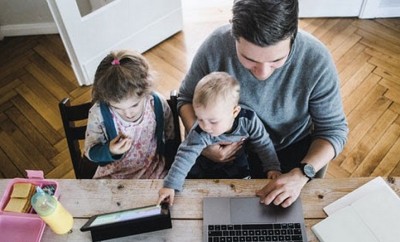
Emotional intelligence training can help us manage COVID-19 anxiety
For over a year, people’s lives were disrupted on an unprecedented scale by COVID-19. Now, as governments lift COVID-19 restrictions and businesses reopen in many countries, many people are anxious about resuming life as normal. Chao Miao, Shanshan Qian, and Ronald H. Humphrey write that training in emotional intelligence may help both employees and the public cope with COVID-19-related anxiety.
In the United Kingdom, Europe, the USA, and some other countries, the success of vaccine programmes has meant that governments are relaxing COVID-19 restrictions, businesses are reopening, and employees are being asked to return to work instead of working from home. Retail outlets, hospitality venues, restaurants, etc., are now free to welcome customers. Despite this progress, surveys show that many people, perhaps even the majority, are anxious about resuming life as normal. This anxiety can hinder the ability of employees to return to work and to work alongside their colleagues. It may also interfere with the successful reopening of many businesses, as customers may still be reluctant to return to normally crowded places, and these businesses may fail to attract enough customers to make staying open profitable.
It is not surprising that many people still have anxiety about COVID-19. For roughly a year and half, people’s lives were disrupted on an unprecedented scale. Almost every aspect of everyday life was deemed risky; even going within two meters of other people was prohibited. Hugging relatives in care homes was banned, seeing friends was also declared a major health risk and prohibited. Weddings with friends and family members attending were declared likely to be super spreader events and outlawed. At the height of lockdown, only essential shopping was allowed, and those on shielding lists were told to shop for food online and to use home delivery.
Συνέχεια ανάγνωσης εδώ
Πηγή: blogs.lse.ac.uk




